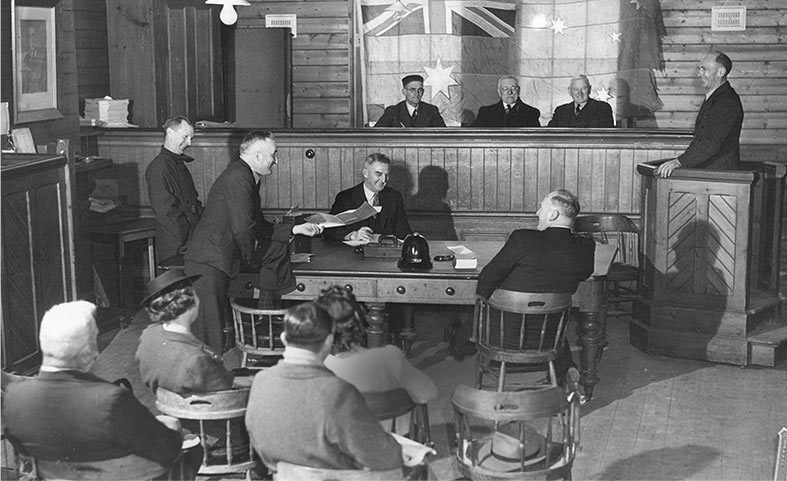The Law and History Review (LHR) is already among the most highly regarded historical and legal journals published in English. It is widely read by historians, lawyers, and social scientists, many trained in multiple disciplines. As the official journal of the American Society for Legal History (ASLH), LHR is an invaluable resource, allowing us to see the latest and best work in the field. The history of the journal reflects the growth of fine scholarship dedicated to exploring the legal past. The inauguration of The Docket, LHR’s new digital imprint, provides us all a fitting moment to reflect on the accomplishments of the journal, and its prospects for the future.
The journal was founded in 1982 by Cornell law professor Russell Osgood with support of ASLH President Morris Arnold and others who desired a top quality journal for studies in legal history, and its first issue appeared in 1983. It has been continually published for the past thirty-five years. Initially, the journal was a biannual venture of Cornell University Press and the ASLH. When Osgood assumed the duties of Dean of Cornell Law, Stan Katz led the Society to negotiate a move to the University of Illinois Press. The journal began publishing with Illinois in 1988 with an expanded mandate to consider “social history of the law” in addition to history of legal doctrine and institutions. While the move entailed some initial difficulty, editor Bruce Mann guided the journal into a successful new era. Mann was succeeded by Michael Grossberg (1993), Chris Tomlins (1996), David Tanenhaus (2006), and Elizabeth Dale (2013). Each of these driven editors deepened and broadened the journal and its audience, helping it grow to a triannual publication in 1996 and a quarterly in 2010, when publication moved to Cambridge University Press. We proudly welcomed Gautham Rao to the editorship at our 2017 ASLH annual meeting.
More than three decades of publication, now four times a year, have established LHR at the head of the pack. The journal is highly selective and truly worldwide in scope (recent issues have featured articles on Britain, China, Colombia, India, Israel, and Russia, in addition to the United States and Canada). It is also innovative in its attention to theory and method, focusing not only on formal law, but extra-legal practices, comparative law, and coercion in its multiple forms. All of us who value fine work in legal history look forward to each issue. LHR is, as they say, must reading for the cognoscenti.
How fitting, then, that Gautham and his team of associate editors, Angela Fernandez, Jedidiah Kroncke, and Elizabeth Kamali, now add a new Editor for Digital Projects, Michan Connor, who will guide this new venture in digital publishing on behalf of the Society and its flagship journal. We congratulate him on this undertaking and thank him for his work on behalf of LHR and the field more generally. The first edition of the Docket promises to highlight the process of scholarship, showcase rising scholars in the field, and spark conversations about the evolving field of legal history. Gentle readers, a treat is in store for us all!
Sally Gordon


